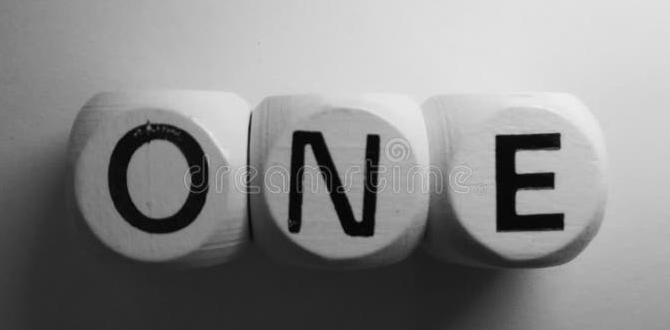Drinking alcohol makes you pee more because it’s a diuretic. Alcohol reduces the production of a hormone called vasopressin, which helps your body hold onto water. Without enough vasopressin, your kidneys send more water to your bladder, making you need to go to the bathroom more often.
Ever notice how trips to the bathroom seem endless when you’re having a few drinks? It’s a common experience, and it can be a bit annoying, especially when you’re trying to enjoy time with friends or relax at home. But don’t worry, you’re not alone, and there’s a clear reason why this happens. We’ll walk you through exactly why alcohol makes you urinate so much, and what you can do to manage it. Let’s get started!
Why Alcohol Makes You Urinate More
Alcohol’s effect on your body is the main reason you find yourself heading to the restroom more frequently. Here’s a simple breakdown:
- Reduced Vasopressin: Alcohol interferes with vasopressin, a hormone that tells your kidneys to conserve water.
- Diuretic Effect: Without enough vasopressin, your kidneys don’t hold back as much water, leading to increased urine production.
- Dehydration: All that extra urination can lead to dehydration, which can cause headaches and other unpleasant symptoms.
Let’s dive deeper into the science behind this process.
The Role of Vasopressin (ADH)
Vasopressin, also known as antidiuretic hormone (ADH), plays a crucial role in regulating your body’s water balance. Here’s how it works normally:
- Normal Function: ADH is produced by the hypothalamus in the brain and stored in the pituitary gland.
- Kidney Regulation: When your body needs to conserve water, ADH is released, signaling the kidneys to reabsorb water back into the bloodstream instead of sending it to the bladder.
- Water Balance: This process helps maintain the right balance of water in your body, keeping you hydrated.
When you drink alcohol, this system gets disrupted.
How Alcohol Disrupts Vasopressin
Alcohol acts as a suppressant on vasopressin production. Here’s what happens:
- Suppressed Production: Alcohol inhibits the release of ADH from the pituitary gland.
- Kidney Miscommunication: Without enough ADH, the kidneys don’t get the signal to conserve water.
- Increased Urine Output: This results in more water being sent to the bladder, leading to frequent urination.
This diuretic effect is why you might find yourself needing to pee more often shortly after consuming alcohol.
The Diuretic Effect Explained
A diuretic is a substance that promotes increased urination. Alcohol’s diuretic effect is significant because it directly impacts how your kidneys handle fluids. Here’s a closer look:
- Kidney Function: Your kidneys filter waste and excess water from your blood, creating urine.
- Alcohol’s Impact: When alcohol reduces vasopressin, the kidneys send more water to the bladder.
- Increased Urination: This leads to a higher volume of urine and more frequent trips to the bathroom.
This process can quickly lead to dehydration if you’re not careful.
Dehydration and Alcohol
Dehydration is a common side effect of drinking alcohol. Here’s why it happens and what you can do to prevent it:
- Fluid Loss: Increased urination leads to a loss of fluids.
- Electrolyte Imbalance: Along with water, you also lose electrolytes like sodium and potassium.
- Symptoms: Dehydration can cause headaches, dizziness, fatigue, and dry mouth.
Staying hydrated is key to minimizing these effects.
Other Factors That Increase Urination
Besides alcohol, several other factors can contribute to increased urination. Being aware of these can help you better manage your body’s fluid balance.
- Caffeinated Beverages: Drinks like coffee, tea, and some sodas are also diuretics.
- Certain Medications: Some medications, such as diuretics prescribed for high blood pressure, can increase urination.
- High Fluid Intake: Drinking a lot of any liquid, especially in a short period, will naturally increase urine output.
- Medical Conditions: Conditions like diabetes and urinary tract infections (UTIs) can also cause frequent urination.
Let’s examine how these factors can individually impact your body.
Caffeine as a Diuretic
Caffeine, like alcohol, has diuretic properties that can increase urine production. Here’s how:
- Stimulant Effect: Caffeine stimulates the bladder and can increase the urge to urinate.
- Kidney Impact: It can also affect kidney function, leading to increased fluid excretion.
- Combined Effect: Combining alcohol and caffeine can amplify the diuretic effect, leading to even more frequent urination.
Medications and Frequent Urination
Certain medications can also contribute to increased urination. Common culprits include:
- Diuretics: Often prescribed for high blood pressure or edema, these medications increase kidney output.
- Diabetes Medications: Some diabetes drugs can increase glucose excretion through urine, which pulls more water along with it.
- Other Medications: Certain antidepressants and other drugs can also have diuretic effects.
If you’re taking medication and notice increased urination, talk to your doctor.
Medical Conditions and Increased Urination
Several medical conditions can cause frequent urination. It’s important to be aware of these, especially if you experience other symptoms.
- Diabetes: High blood sugar levels can overwhelm the kidneys, leading to increased urine production as the body tries to flush out excess glucose.
- Urinary Tract Infections (UTIs): UTIs can irritate the bladder, causing a frequent and urgent need to urinate.
- Overactive Bladder (OAB): This condition causes sudden urges to urinate, often leading to frequent trips to the bathroom.
- Prostate Issues: In men, an enlarged prostate can press on the urethra, causing frequent urination, especially at night.
If you suspect a medical condition is causing your frequent urination, consult a healthcare professional.
Tips to Manage Frequent Urination When Drinking
While you can’t completely eliminate the need to urinate when drinking alcohol, there are several strategies you can use to manage it and minimize discomfort.
- Hydrate: Drink plenty of water between alcoholic beverages.
- Pace Yourself: Avoid drinking too quickly.
- Avoid Mixing: Limit or avoid mixing alcohol with caffeinated drinks.
- Eat Food: Eating can slow down the absorption of alcohol.
- Know Your Limits: Be aware of how much alcohol you can handle.
Let’s break down each of these tips in more detail.
Hydrate with Water
Staying hydrated is the simplest and most effective way to combat the diuretic effects of alcohol. Here’s how to do it:
- Alternate Drinks: Have a glass of water between each alcoholic beverage.
- Drink Before and After: Drink water before you start drinking alcohol and before you go to bed.
- Carry a Water Bottle: Keep a water bottle with you and sip on it throughout the evening.
This helps to replenish the fluids you’re losing through increased urination.
Pace Yourself
Drinking slowly gives your body more time to process the alcohol, reducing the sudden impact on your kidneys. Consider these tips:
- Sip, Don’t Gulp: Take small sips and savor your drink.
- Set a Limit: Decide how many drinks you’ll have before you start.
- Take Breaks: Give yourself breaks between drinks.
Pacing yourself can make a big difference in how your body handles alcohol.
Avoid Mixing Alcohol with Caffeinated Drinks
Combining alcohol and caffeine can worsen dehydration and increase urination. Here’s why:
- Increased Diuretic Effect: Both substances are diuretics, so combining them amplifies the effect.
- Masked Effects: Caffeine can mask the depressant effects of alcohol, leading you to drink more than you realize.
- Heart Rate: This combination can also increase your heart rate and blood pressure.
Eat Food While Drinking
Eating food while drinking can help slow down the absorption of alcohol into your bloodstream. This can reduce the sudden spike in blood alcohol levels and ease the impact on your kidneys.
- Choose High-Protein Foods: Foods high in protein and fat take longer to digest, slowing alcohol absorption.
- Avoid Salty Snacks: Salty snacks can make you thirstier, leading you to drink more.
- Eat Before You Start: Having a meal before you start drinking can also help.
Know Your Limits
Understanding your alcohol tolerance is crucial for managing its effects. Everyone processes alcohol differently, so pay attention to how your body reacts.
- Track Your Drinks: Keep track of how many drinks you’ve had.
- Listen to Your Body: Pay attention to how you feel and stop when you’ve had enough.
- Consider Your Weight and Gender: These factors can affect how quickly you metabolize alcohol.
When to See a Doctor
While frequent urination from alcohol is usually harmless, there are times when it could indicate a more serious underlying issue. Consult a doctor if you experience any of the following:
- Excessive Thirst: Feeling excessively thirsty even after drinking water.
- Painful Urination: Experiencing pain or burning during urination.
- Blood in Urine: Noticing blood in your urine.
- Frequent Urination Without Alcohol: Experiencing frequent urination even when you’re not drinking alcohol.
- Dizziness or Confusion: Feeling dizzy or confused, which could indicate severe dehydration.
These symptoms could be signs of dehydration, a urinary tract infection, diabetes, or other medical conditions that require attention.
FAQ About Alcohol and Urination
Here are some frequently asked questions about why alcohol makes you urinate so much.
Why does alcohol make me pee so much at night?
Alcohol disrupts the hormone vasopressin, which helps your body retain water. When vasopressin is suppressed, your kidneys send more fluid to your bladder, leading to increased urination, especially at night.
Is it normal to pee a lot after drinking alcohol?
Yes, it is normal to urinate more frequently after drinking alcohol. Alcohol is a diuretic, meaning it promotes increased urine production.
How can I prevent frequent urination when drinking alcohol?
To manage frequent urination, drink water between alcoholic beverages, pace yourself, avoid mixing alcohol with caffeinated drinks, eat food while drinking, and know your limits.
Can alcohol cause dehydration?
Yes, alcohol can cause dehydration. Increased urination leads to fluid loss, which can result in dehydration if you don’t replenish fluids.
What are the symptoms of dehydration from alcohol?
Symptoms of dehydration from alcohol include excessive thirst, headache, dizziness, fatigue, and dry mouth.
Is frequent urination a sign of alcohol poisoning?
Frequent urination alone is not a definitive sign of alcohol poisoning. However, if it’s accompanied by confusion, vomiting, slow breathing, or loss of consciousness, seek immediate medical attention.
Can certain alcoholic drinks make me pee more than others?
Yes, drinks with higher alcohol content can exacerbate the diuretic effect, leading to increased urination. Additionally, mixing alcohol with sugary drinks can also increase urination.
Conclusion
Now you know why you urinate so much when you drink alcohol! Alcohol’s impact on vasopressin production leads to increased urine output and potential dehydration. By understanding these effects, you can take steps to manage your fluid intake, pace yourself, and stay hydrated. Remember to listen to your body and seek medical advice if you experience concerning symptoms. With these tips, you can enjoy your social time while staying comfortable and healthy. Cheers to informed choices and balanced hydration!


